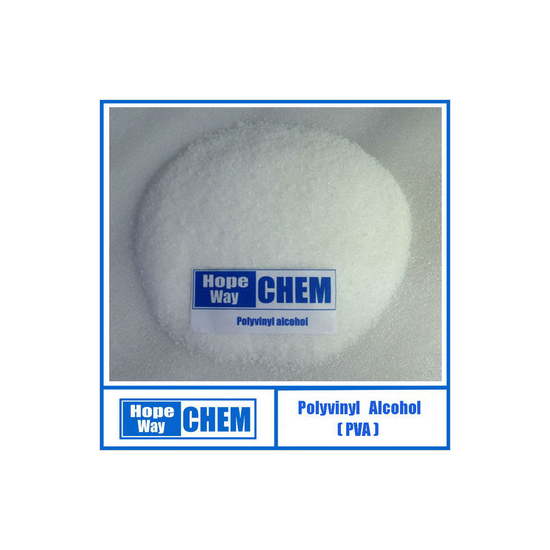- Home >> Polyvinyl Alcohol(PVA) >> agricultural chemicals polyvinyl alcohol

Polyvinyl alcohol has excellent film forming, emulsifying and adhesives properties. It is also resistant to oil, grease and solvents. It has high tensile strength and flexibility, as well as high oxygen and aroma barrier properties. However these properties are dependent on humidity, in other words, with higher humidity more water is absorbed. The water, which acts as a plasticiser, will then reduce its tensile strength, but increase its elongation and tear strength.
PVA is usually processed in the form of aqueous solution. Since the solution is slightly acidic (pH 5~7), vessel should be made of materials, which will not contaminate the solution with corrosive material or rusts. Stainless steel vessel, enameled containers or polyester tanks are recommended.
The specific gravity of PVA is ranging from 1.26 to 1.31, which is heavier than that of water. Low agitation speed or unfavorable agitating condition sometimes causes coarse particles to precipitate and to block the outlet of the dissolving tank. Hence, a flush valve or tank valve is recommended to be installed in the bottom of the vessel to prevent the particles from blocking the discharge line.
PVA HWF-17 is usually used as a surface treatment agent for paper and paperboard. When higher coverage isrequired, HWF-05 or HWF-08 may be applied. A sizing solution of 2-5% is used, with a plasticizer for example glycerol, an insolubilizer for example glyoxal and defoamer added to the solution. A wax emulsion (10-50% of the weight of PVA ) may be added to prevent sticking to the dryer and staining on the calendar roll. Metallic stearates and rosins may also be applied.The applications of PVA for paper industry are listed as follows.
Previous:pva supplier
Next: pva supplier



